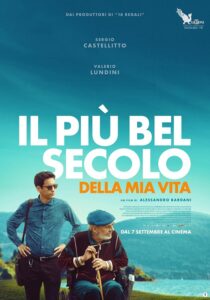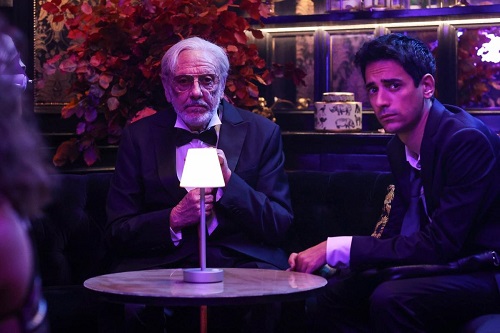Il Più Bel Secolo Della Mia Vita: the movie review
The Italian law, in which a Foundling cannot know his/her origins before turning 100, prioritizes the right of a mother’s privacy above all else. The legislation was initially intended to curb the abandonment of newborns and illegal abortion practices, and so was justified in the name of child welfare. This law and a book written by Nancy Newton Verrier in 2007, titled “La Ferita Primaria”, was the inspiration for Alessandro Bardani’s 2015 play and eventual film adaptation titled “Il Più Bel Secolo Della Mia Vita”. It’s a story that as Bardani puts it, “has many facets and deals with a lot”. Except in this case the origin story is kept in a secret file, by law, for 100 years.
In the film, Sergio Castellitto plays Gustavo, a foundling and centenarian who’s finally earned a peek at his secret file. When a young man Giovanni – played by Valerio Lundini – arrives to greet Gustavo from the Association of Adopted Children, a funny yet affecting bond instantly forms between the odd pair. While transporting Gustavo to the Foundation, an uptight Giovanni must survive Gustavo’s insults, sordid personal stories and questionable life advice. At 100, Gustavo seems to have let go of all his inhibitions. The story’s inherent and relatable humour makes this an easy watch, as the two continuously go at each other like old pals. Bardani and Castellitto even mused that if the title characters were likened to famous footballers, they’d be the infamous Calcio duo of Cassano-Totti. But a better description comes directly from Castellitto: “Gustavo is a youthful old man and Giovanni is an old youngster”. And on Gustavo’s personality he adds, “This is the eventual sensibility, paradoxically. Because at 100 years old you can finally say everything you think”.

At its core, “Il Più Bel Secolo Della Mia Vita” explores the importance of knowing one’s origin, of our biological relationships and the ancestral tree. Gustavo and Giovanni are at odds about their adoptee dilemma, and it’s a testament to Bardani’s storytelling that the viewer is given substantive arguments from both sides. Giovanni’s stubbornness and Gustavo’s carefree attitude are somewhat inverted archetypes, perhaps meant to demonstrate the evolution of a limiting mindset. Maybe, through Gustavo, Bardani offers the adoptee hope – the aspiration to make a family where you find it and with whomever is willing to accept the title. Giovanni, we learn, had loving adoptive parents with whom he’s kept a grudge. And when Gustavo discovers this, his reaction perfectly encapsulates the film’s message: that a mother isn’t simply a person, but a responsibility.
Where to watch “Il Più Bel Secolo Della Mia Vita”: Prime Video
Massimo Volpe is a filmmaker and freelance writer from Toronto: he writes reviews of Italian films/content on Netflix




